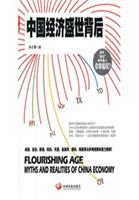It would be idle to take up in any detail the claims of phrenologist and palmist. The former had a very respectable start in the work of Broca and Gall[1] in that the localization of function in the various parts of the brain made at least partly logical the belief that the conformation of the head also indicated functions of character. But there are two fatal flaws in the system of phrenological claims. First, even if there were an exact cerebral localization of powers, which there is not, it would by no means follow that the shape of the head outlined the brain. In fact, it does not, for the long-headed are not long-brained, nor are the short-headed short-brained. Second, the size and disposal of the sinuses, the state of nutrition in childhood have far more to do with the "bumps" of the head than brain or character. The bump of philoprogenitiveness has in my experience more often been the result of rickets than a sign of parental love.
[1] It is to be remembered that phrenology had a good standing at one time, though it has since lapsed into quackdom. This is the history of many a "short cut" into knowledge. Thus the wisest men of past centuries believed in astrology. Paracelsus, who gave to the world the use of Hg in therapeutics, relied in large part for his diagnosis and cures upon alchemy and astrology.
Without meaning to pun, we may dismiss the claims of palmistry offhand. Normally the lines of the hand do not change from birth to death, but character does change. The hand, its shape and its texture are markedly influenced by illness,[1] toil and care. And gait, carriage, clothes and the dozen and one details by which we judge our fellows indicate health, strength, training and culture, all of which are components of character, or rather are characters of importance but give no clue to the deeper-lying traits.
[1] Notably is the shape of the hand changed by chronic heart and lung disease and by arthritis. But the influence of the endocrinal secretions is very great.
As a matter of fact, judgment of character will never be attained through the study of face, form or hand. As language is a means not only of expressing truth but of disguising it, so these surface phenomena are as often masks as guides. Any sober-minded student of life, intent on knowing himself or his fellows, will seek no royal road to this knowledge, but will endeavor to understand the fundamental forces of character, will strive to trace the threads of conduct back to their origins in motive, intelligence, instinct and emotion.
We have emphasized the practical value of some sort of character analysis in dealing with others. But to know himself has a hugely practical value to every man, since upon that knowledge depends self-correction. For "man is the only animal that deliberately undertakes while reshaping his outer world to reshape himself also."[1] Moreover, man is the only seeker of perfection; he is a deep, intense critic of himself. To reach nobility of character is not a practical aim, but is held to be an end sufficient in itself. So man constantly probes into himself--"Are my purposes good; is my will strong--how can I strengthen my control, how make righteous my instincts and emotions?" It is true that there is a worship--and always has been--of efficiency and success as against character; that man has tended to ask more often, "What has he done?" or, "What has he got?" rather than, "What is he?" and that therefore man in his self-analysis has often asked, "How shall I get?" or, "How shall I do?" In the largest sense these questions are also questions of character, for even if we discard as inadequate the psychology which considers behavior alone as important, conduct is the fruit of character, without which it is sterile.
[1] Hocking.
This book does not aim at any short cuts by which man may know himself or his neighbor. It seeks to analyze the fundamentals of personality, avoiding metaphysics as the plague. It does not define character or seek to separate it from mind and personality. Written by a neurologist, a physician in the active practice of his profession, it cannot fail to bear more of the imprint of medicine, of neurology, than of psychology and philosophy. Yet it has also laid under contribution these fields of human effort. Mainly it will, I hope, bear the marks of everyday experience, of contact with the world and with men and women and children as brother, husband, father, son, lover, hater, citizen, doer and observer. For it is this plurality of contact that vitalizes, and he who has not drawn his universals of character out of the particulars of everyday life is a cloistered theorist, aloof from reality.













